ARE YOU KNOW ?
BEST GLOBAL UNIVERSITIES FOR GEOSCIENCES IN CHINA !
—- (U.S NEWS WORLD & REPORT) —-
| TIE | SCHOOL NAME |
| 14 | Peking University |
| 19 | China University of Geoscieces (Wuhan) |
| 43 | Najing University |
| 56 | Tsinghua University |
| 58 | Beijing Normal University |
| 74 | Wuhan University |
| 110 | Sun Yat – Sen University |
| 120 | Nanjing University of Information Science & Technology |
| 130 | China University of Petroleum |
| 141 | University of Science and Technology of China |
| 146 | Ocean University of China |
| 162 | China University of Mining |
| 166 | Tongji University |
| 167 | Lanzhou University |
| 178 | Xi’an Jiaotong University |
| 182 | Fudan University |
| 200 | Northwest University |
| 215 | East China Normal University |
| 239 | Xi’an University |
CHINESE GOVERMENT SCHOLARSHIPS : {China University of Geosciences in Beijing} AND { China University of Geosciences in Wuhan}
Department: Geosciences Fields
Course Level: Master (3 academic year ) /PhD (4 academic year)
Award: Full-Funded
Nationality: International
* Application Time: Jan 1st-April 15th
* Scholarship: Full Scholarship covers
– Free waiver for registration and tutition
– Free on – campus dormitory accommodation
– Monthly stipend (CNY 3500 for Doctoral students, CNY 3000 for Master’s students.
– Comprehense Medical Insurance & Protection Scheme.
* Program Category, Duration and Language of Instruction
– The teaching language is Chinese. Application with previous Chines language study experieces are preferred. Application without Chines language foundations can also apply to the program by including a 1 – year Chinese language study at preparatory university. All candidates must reach Chinese Proficiency Test (HSK) Level 4 before being permitted to degree study. The scholarship duration covers both Chinese language study and degree study.
Applicants who do not meet the above requirements will not be accepted.
※ Students who have been granted with other Chinese scholarships or funding (2020-2021) are not eligible for this scholarship.
Application Documents:
- Application Form for Chinese Government Scholarship (written in Chinese or English);
- Notarized highest diploma;
Prospective diploma recipients must submit official document issued by your current school to prove your current student status or expected graduation date. Documents in languages other than Chinese or English must be attached with notarized Chinese or English translations.
- Academic transcripts (written in Chinese or English);
Transcripts in languages other than Chinese or English must be attached with notarized Chinese or English translations.
- A Study Plan or Research Proposal (written in Chinese or English);
This should be a minimum of 800 words.
- Two Recommendation Letters (written in Chinese or English);
Applicants must submit two recommendation letters signed by a professor or an associate professor.
6.Foreigner Physical Examination Form (photocopy)
The physical examinations must cover all of the items listed in the Foreigner Physical Examination Form. Incomplete forms or forms without the signature of the attending physician, or the official stamp of the hospital, or a sealed photograph of the applicant are considered as invalid. Please carefully plan your physical examination schedule as the result is valid for only 6 months.
- The copy of valid HSK Certificate (if available).
- Other additional documents such as awards, certificates, publications.
All documents should be bound together on top left corner in the order of 1 to 8. (You should submit TWO sets of bound documents). No application documents will be returned.
Approval &Notification:
The university will review the application documents and decide the nominated candidates before the end of May. The list of nominated candidates will be sent to CSC for review and approval.
Before the end of July, Admission Letter and Visa Application Form for Study in China (JW201) will be sent out from the university to the approved scholarship winners.
China University of Geosciences in Beijing
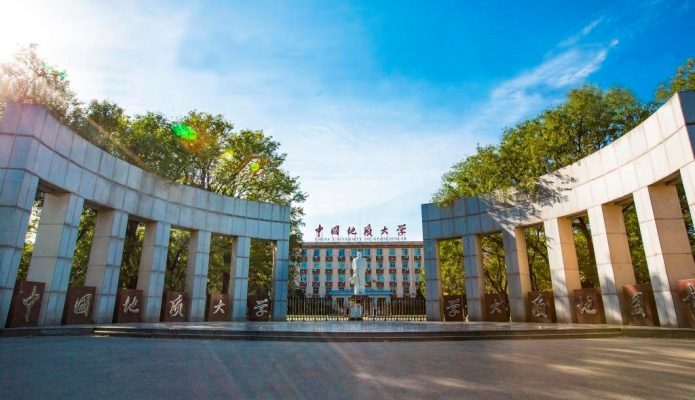
China University of Geosciences in Beijing traces its roots to Beijing College of Geology, founded in 1952 as a result of the merger of the geological departments from Peking University, Tsinghua University, Tianjin University, and Tangshan Railway College. Early success led to its being named one of the nation’s 64 “key colleges and universities.” In 1975, the school was obliged to move to a new campus in Wuhan. In 1978, the graduate faculties relocated in Beijing under the support of Mr. Deng Xiaoping, the leader of the People’s Republic of China. In 1987, the Ministry of Education approved a plan for China University of Geosciences to develop two tertiary institutions in Beijing and Wuhan respectively, both of which have independent legal personalities.
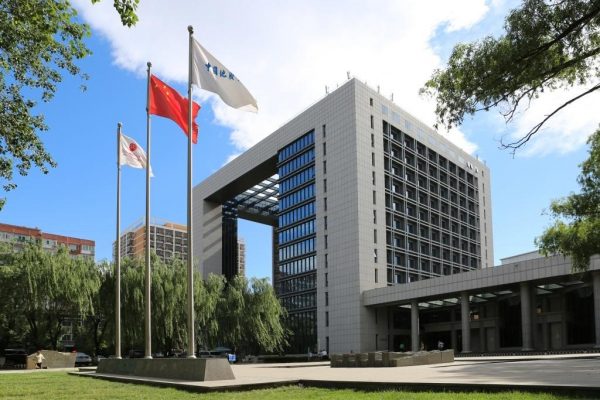
China University of Geosciences in Beijing is among the first group of China’s higher level universities designated for the state key construction of the “211” project and is one of the first 33 universities in China approved to set up graduate schools as well. In February 2000, China University of Geosciences in Beijing (heretofore “CUGB”), previously managed by the Ministry of Land and Resources, was put under the management of the Ministry of Education. In March 2005, CUGB and China University of Geosciences (Wuhan) became independent educational entities. Finally, in September 2006, CUGB was established as a joint responsibility of the Ministry of Education and the Ministry of Land and Resources.

Since its foundation in 1952, China University of Geosciences in Beijing has experienced an unusual course of development: creation, expansion, re-location, reconstruction, and revitalization. CUGB has produced a large cohort of graduates equipped with the technical knowledge and professional attitudes needed to build up the nation and contribute to the flourishing of the earth sciences.
At present, the university boasts nine members of the Chinese Academy of Sciences on its staff. Out of 40,000+ graduates, 24 alumni have been elected to either the Chinese Academy of Sciences or the Chinese Academy of Engineering, and more than 200 alumni have been singled out as “model workers” by provinces or ministries.
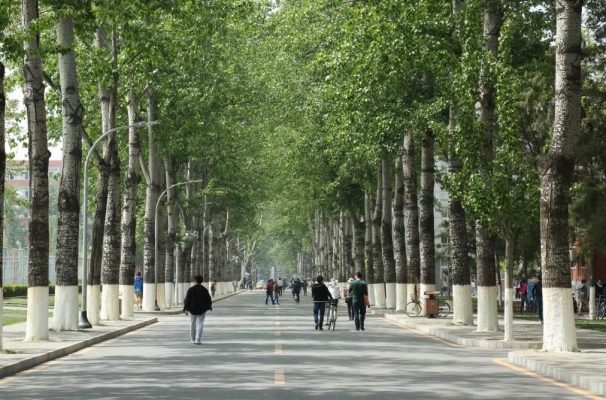
As a multi-disciplinary national key university, CUGB is one of China’s main centers for educating geological researchers and professionals of all sorts. It has evolved an educational program that balances sciences, technology, arts, management, economics and law—one which emphasizes a connection between education and geology, natural resources, environment and geological engineering. CUGB has 17 colleges with a total of 47 undergraduate programs and 118 graduate programs for a master’s degree, 37 doctoral programs, 16 fields of Master of Engineering, and 9 post-doctoral research stations.
At present there are 14,000 full-time students, 25000 continuing education students, 12000 independent college students enrolled with a teaching and research staff comprised of 1200. CUGB is headed by Mr. Junjie Ma, the chairman of the university council and Prof.Youhong,Sun, president of the university.
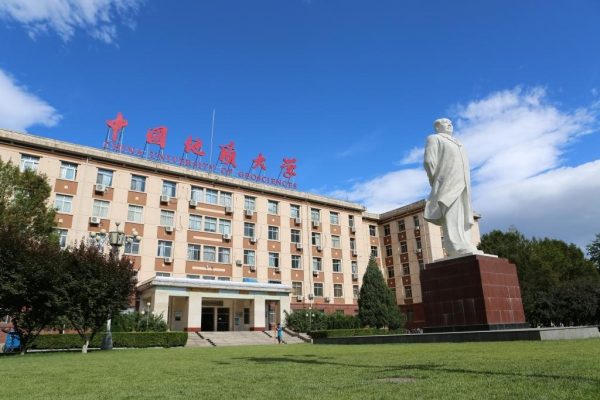
During its 50 years of practice, China University of Geosciences in Beijing has developed its glorious motto of “work hard, keep modest, and pursue truth and pragmatism”. Guided by the principle of scientific development, CUGB attempts to accomplish the following: it embraces a philosophy of “special and best;” it earnestly carries out the Party’s policy on education; it perseveres in the socialist orientation in education provision; and CUGB cultivates innovative graduates with “good moral, sound background, wide knowledge, high profession.” The university is going forward to become a first-class international university in the field of geosciences.
China University of Geosciences in Wuhan
China University of Geosciences (CUG), founded in 1952, is a national key university affiliated with the Ministry of Education. It is also listed in the National “211 Project”, the “985 Innovation Platform for Advantageous Disciplines” and the “Double First-class Plan”. CUG, featuring geosciences, is a comprehensive university that also offers a variety of degree programs in science, engineering, literature, management, economics, law, education and arts. Its Geology and Geological Resources & Engineering have both been ranked as national number one disciplines. Its Earth Science, Engineering, Environmental Studies & Ecology, Materials Science, Chemistry, and Computer Science have entered the top 1% of global ESI (Essential Science Indicators), with Earth Science in the top 1‰ of the list.
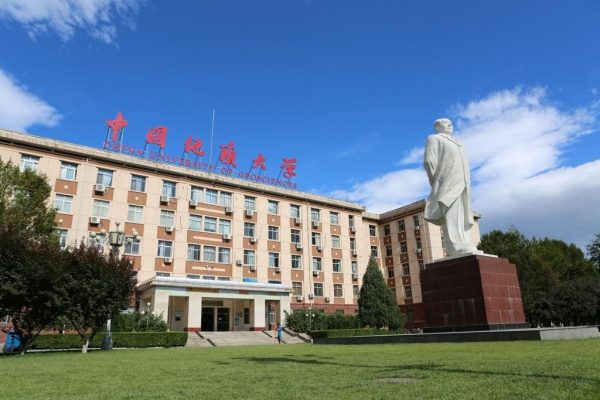
CUG now has two campuses in Wuhan. The main campus is the Nanwang Mountain Campus, located in the heart of the Wuhan East Lake National Innovation Demonstration Zone, which is popularly known as China Optics Valley. The Future City Campus is located in the east of Wuhan and is 27 km from the main campus. These two picturesque campuses cover a combined area of 1,421,758 m2. They are ideal places to study, work, and enjoy life. CUG also boasts four field training centers: Zhoukoudian in Beijing, Beidaihe in Hebei Province, Zigui in Hubei Province, and Badong in Hubei Province.

CUG has established a complete education system. As of October 2018, 26,103 full-time students, including 18,140 undergraduate students, 6,312 master’s students, and 1,651 doctoral students, have enrolled in its subsidiary 19 schools and 86 research institutes. CUG currently has a faculty of 1,804 full-time teachers, among which there are 505 professors (9 of which are members of the Chinese Academy of Sciences) and 882 associate professors.
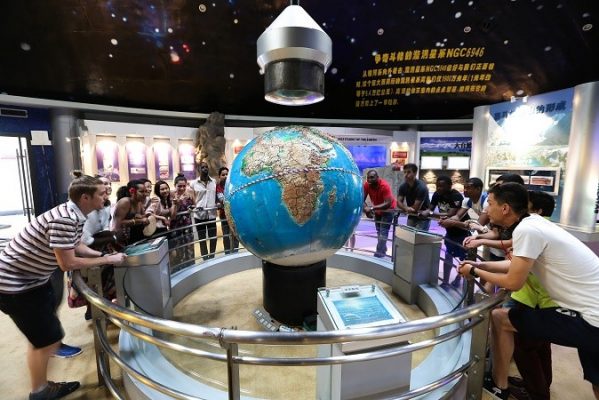
CUG is focused on fostering high-quality talent. Among its over 200,000 graduates, many have gone on to become scientific and technological elites, statesmen, business leaders and athletes. And they have made great contributions to the nation and society, represented by former Premier WEN Jiabao and 37 members of the Chinese Academy of Sciences and Chinese Academy of Engineering.
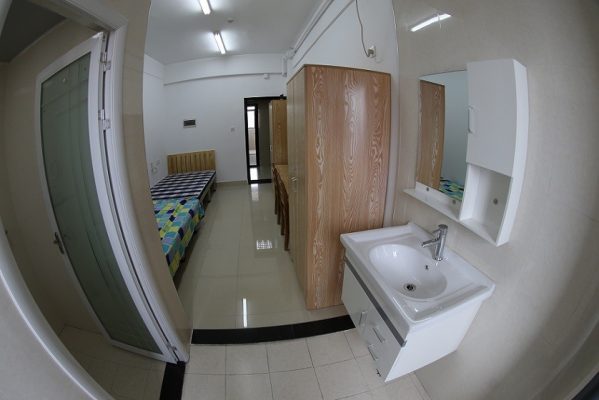
CUG has strengthened exchanges and cooperation with international universities. It has signed friendly cooperation agreements with more than 150 universities from the United States, France, Australia, Russia and other countries. CUG has actively carried out academic, scientific and cultural exchanges with universities around the world. There are about 1,000 international students from more than 90 countries studying at CUG. It also sponsors more than 900 teachers and students to study abroad or conduct international exchanges, and invites more than 400 international experts to visit, lecture, and teach at CUG every year. In 2012, CUG initiated and co-established the International University Consortium in Earth Science (IUCES) with 11 other world-renowned universities.

IUCES is committed to promoting the common development of geosciences education and scientific research through resource sharing, exchange and cooperation among its member institutions. In addition, CUG has partnered with Bryant University from USA, Alfred University from USA, and Veliko Turnovo University from Bulgaria in establishing three Confucius institutes on their campuses.
